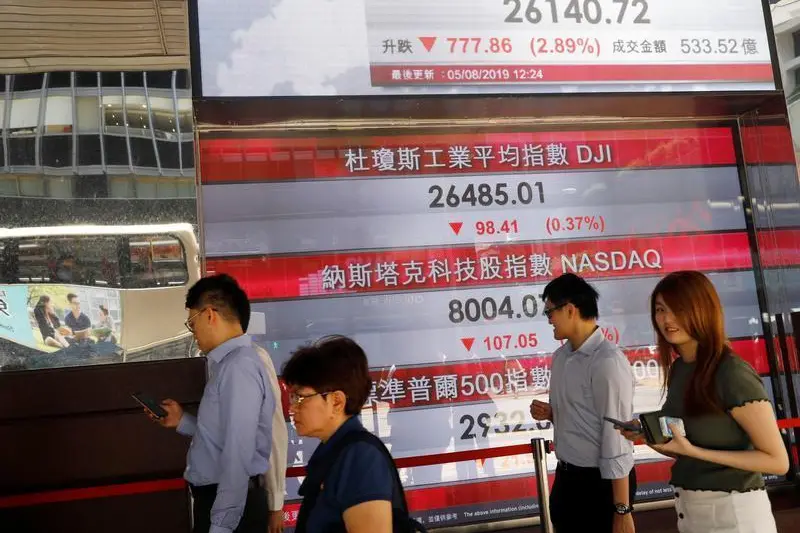PHOTO
China and Hong Kong stocks fell on Tuesday as investors locked in gains after a strong rally that was fuelled by record monthly foreign inflows, although analysts predict further upside ahead, citing growing signs of a post-COVID economic recovery.
** The correction could also be triggered by signs of an escalating Sino-U.S. tech war, and risk-off sentiment ahead of this week's U.S. rate decision, Morgan Stanley said, adding the bank "would take the current opportunity to recommend buy-the-dip."
** China's bluechip CSI300 Index lost 0.8% by the lunch break, while the Shanghai Composite Index fell 0.4%. Hong Kong's benchmark Hang Seng dropped 1.3%.
** For the month, though, CSI300 is set to jump nearly 8%, while Hang Seng is on track to gain 10%.
** The recent market rebound was fuelled by strong foreign money inflows, as global funds bet on China recovery after Beijing dropped strict COVID curbs last month.
** Despite the week-long Spring Festival break, China's onshore stock market witnessed roughly 140 billion yuan ($20.72 billion) in net foreign buying via Stock Connect in January, registering the biggest monthly inflows on record. It also surpassed total inflows in 2022.
** Meanwhile, official data on Tuesday showed that China's economic activity swung back to growth in January, confirming that the economy had bottomed in December.
** "We expect economic momentum to improve further in Q1 and Q2 as the service sector recovers and consumption normalizes," wrote Zhiwei Zhang, president of Pinpoint Asset Management.
** But most China stocks fell on Tuesday as caution reigned.
** China tech stocks dropped after news that the Biden administration has stopped approvinglicenses for U.S. companies to export most items to China's Huawei, signalling an escalating of the tech war.
** Hong Kong tech shares also fell, following an overnight slump in U.S.-listed China stocks.
** Morgan Stanley said it stays overweight on Chinese equities, citing on-track economic recovery, signs of Sino-U.S. ties stabilization, low correlation with the U.S. market, and attract valuation. ($1 = 6.7570 Chinese yuan) (Reporting by Shanghai Newsroom; editing by Uttaresh.V)





















